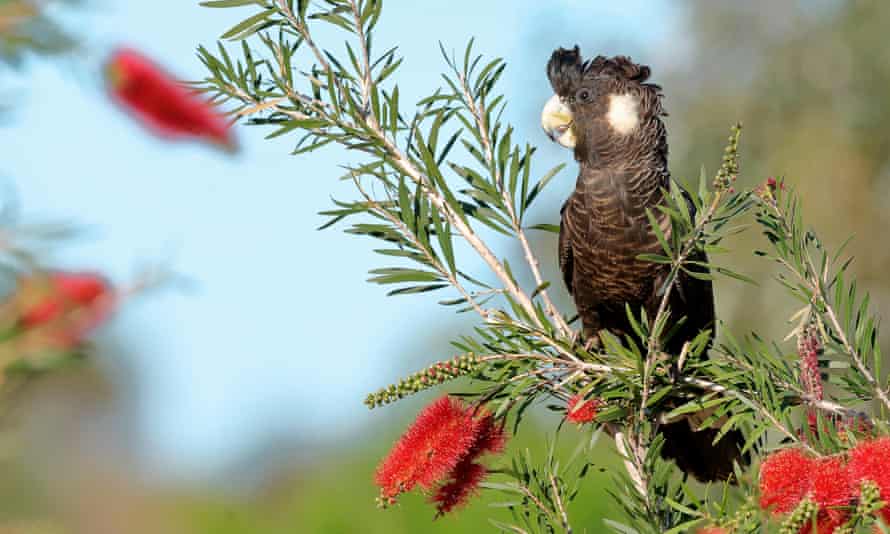Extract from The Guardian
Environmental investigations Australia news
Independent review says department received allegations soon after first permits were issued but exports continued

Last modified on Mon 22 Feb 2021 15.50 AEDT
The federal environment department failed to investigate allegations endangered and rare Australian birds were being sold in Europe at a huge profit and instead continued issuing permits to allow more birds to be exported to a secretive German charity, an independent review has found.
The investigation, by KPMG, was triggered after reporting by Guardian Australia revealed hundreds of birds, including endangered species, were exported to the Berlin-based Association for the Conservation for Threatened Parrots (ACTP) on the grounds that they would be used for a zoo exhibition.
Guardian Australia revealed in 2018 that ACTP had no facility that was freely open to the public and advertisements and private messages showed birds being advertised for sale for tens of thousands of euros.
KPMG’s report, which the Morrison government released selectively to News Corp on Monday before making it publicly available, found the department had issued six permits to allow the export of animals to Germany and that there was prima facie evidence to suggest the birds had been offered for sale.
The review said the department received allegations the “true purpose of the exports was commercial” shortly after the first permits were issued.
Despite this, the department failed to adequately investigate the allegations, making only general inquiries with the German authority responsible for managing wildlife trade, KMPG found.
Officials continued issuing permits, despite the response from German authorities being “general in nature”.
“After the allegations were made in relation to ACTP, further inquiries should have been made prior to the issuing of export permit 3, 4, 5, and 6,” KPMG concluded.
The investigation found those inquiries were not made because of deficiencies in the department’s systems, policies and procedures, rather than individual wrongdoing.
The report found the department had been provided with “names of persons who are alleged to have bought, or be in the possession of ACTP birds, but we have found limited evidence that these lines of enquiry have been pursued and exhausted”.
It said the department faced some jurisdictional challenges in this regard.
KPMG noted it had not investigated whether any party was involved in criminal conduct as this was outside the scope of its review.
For its investigation, KPMG reviewed 945 department documents and interviewed 27 individuals, including the Liberal MP Warren Entsch, who was one of the first people to raise the alarm with the department.
Guardian Australia also provided information for KPMG’s inquiry.
The review said KPMG had received “what appears prima facie to be evidence of birds being offered for sale”. But it said this evidence had not been provided to the department previously.
The report makes eight recommendations, all of which would be adopted, the environment minister, Sussan Ley said.
They include a full review of the department’s enforcement and compliance functions to determine whether the problems identified in the ACTP case are systemic.
KPMG also recommended the establishment of a national registration scheme for wildlife to prove the lineage of animals being exported to crack down on smuggling.
In the short term, the department has been asked to immediately improve its legal and administrative processes and to produce better support documentation for decisions it makes about wildlife trade.
While that work occurs, the review said decisions about non-commercial exports of wildlife should be delegated to senior department executives.
Over the medium term, it recommends the department consider how it could reform Australia’s environmental laws in response to the once-in-a-decade review of the Environment Protection and Biodiversity Conservation (EPBC) Act and introduce risk-based assessments that would ensure more “detailed due diligence” occurred for higher risk applications.
In the wake of Guardian Australia’s reporting, the final report of the EPBC Act review recommended the government tighten the definitions for non-commercial trade, including what can be classified as a zoo.
It also called for a “fit and proper person test” to be applied as broadly as possible when assessing wildlife permits.
Entsch welcomed the KPMG review, describing it as “long overdue”.
“The good thing about it is at last they’re talking about putting some level of traceability on the movement of birds,” he said.
But he said he was “disappointed that no individual has been held culpable for this”.
“They were warned from right after the first shipment. I sat them in my office pleading with them to make checks and get some expert advice,” he said.
“I’m disappointed that they haven’t held any individual responsible.
“I’m also disappointed that the Guardian weren’t acknowledged for the extraordinary effort put in to exposing this case.”
Ley said she had ordered the report to ensure adequate protections were in place to thwart “dodgy dealers and exporters” seeking to profit from trade in native species both in Australia and overseas.
“It is important that we are setting the highest possible benchmarks in the regulation of wildlife trade,” she said.
“My department will be cracking down in all areas covered by the report to ensure we have the strongest systems in place.”
She said the growing involvement of organised crime and sophisticated international operations in the trade of wildlife, along with the soaring value of Australian wildlife on black markets, underlined the need for the “strongest possible deterrent”.
“Already in the last 12 months we have secured a number of convictions and prison sentences for wildlife trade offences,” she said.
“The message for those who break the rules is that if you are caught you will go to jail, and the steps to emerge from this work will ensure that you will be caught.”
.png)
No comments:
Post a Comment